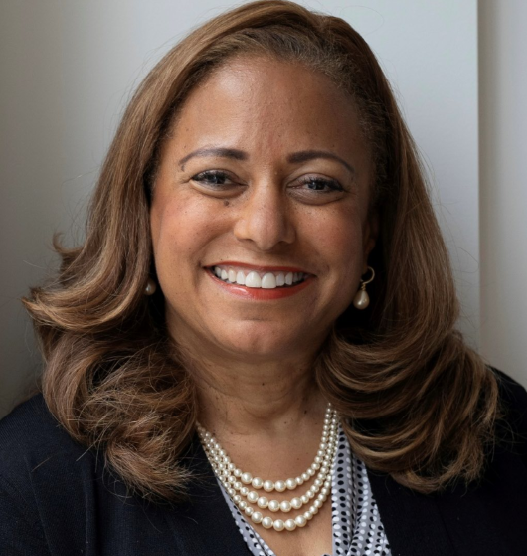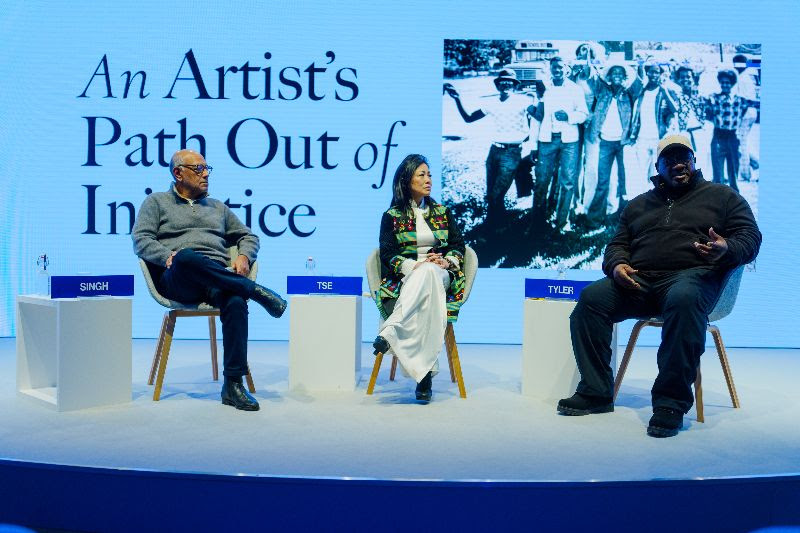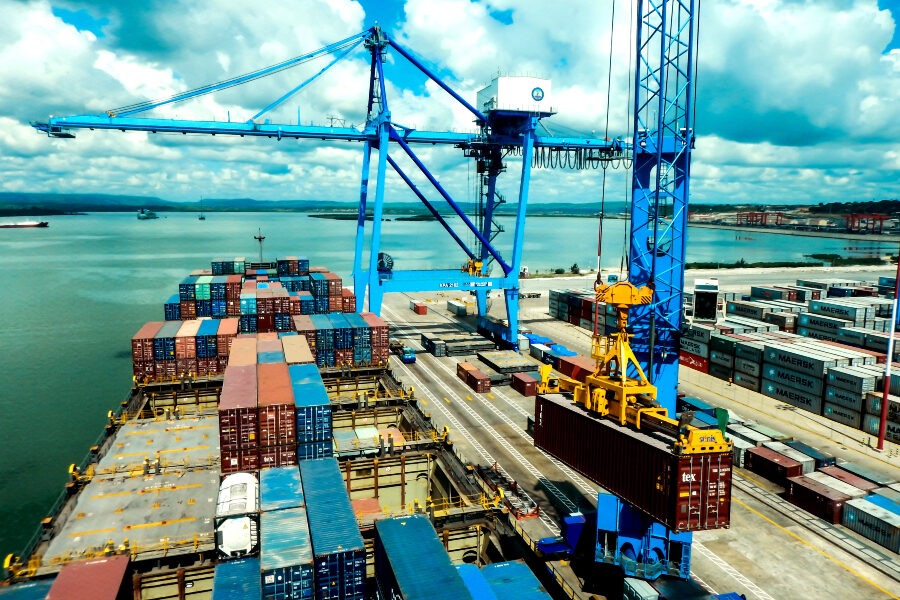Tuesday, December 23, 2025 - 06:36:04
 Columbus, United States | 4°C | Overcast clouds
Columbus, United States | 4°C | Overcast clouds Columbus, United States | 4°C | Overcast clouds
Columbus, United States | 4°C | Overcast cloudsMost Recent

In a significant move to bolster Nigeria’s economic prospects, renowned global business leader, Chairperson of Global Infrastructure Partners and Board member of Open AI Mr. Adebayo Ogunlesi, has committed to supporting the nation’s investment drive. During the recently held World Economic Forum at Davos Mr. Ogunlesi tasked the Honorable Minister of Industry, Trade, and Investment with coordinating […]
...
Davos 2025 has had a distinct energy, as its opening day, January 20th, coincided with the 47th U.S. presidential inauguration, which cast a long shadow over the World Economic Forum by moving the center of gravity for the power elite from Davos to Washington. The implications came in two forms. First, from a […]
...
Ramaphosa took to the podium and called for a return to multilateralism in an address to the World Economic Forum at Davos in which he set out his priorities for the country’s presidency of the G20. Source: WEF
...
Duma Gideon Boko (President of Botswana), Wamkele Keabetswe Mene (Secretary-General, African Continental Free Trade Area Secretariat), Leila Fourie (Group CEO, Johannesburg Stock Exchange),and Samaila Zubairu (President and CEO, Africa Finance Corporation) explore Africa’s potential for economic transformation, driven by the African Continental Free Trade Area (AfCFTA), vast renewable energy resources, and a surge in innovation […]
...
Mohamed Ali Nafti (Minister of Foreign Affairs, Migration and Tunisians Abroad), Yusuf Tuggar (Minister of Foreign Affairs of Nigeria), Bronwen Maddox (Director and Chief Executive, Chatham House), Thérèse Kayikwamba Wagner (Minister of Foreign Affairs of the DRC), and Matia Kasaija (Minister of Finance, Planning and Economic Development of Uganda) examine how African nations—projected to represent 25% […]
...
Strive Masiyiwa (Founder and Executive Chairman, Cassava Technologies), Fatoumata Ba (Founder and Executive Chair, Janngo Capital), Paula Ingabire (Minister of ICT and Innovation, Rwanda) and Robert F. Smith (Founder, Chairman, and CEO, Vista Equity Partners) explore strategies to address the digital divide as technologies reshape the global landscape. The speakers emphasize the need for innovative […]
...
Muhammad Ali Pate (Coordinating Minister of Health and Social Welfare, Nigeria),Bernd Montag (CEO, Siemens Healthineers), and Catherine Russell (Executive Director, UNICEF) discuss innovative approaches needed to prioritize women’s health globally, focusing on sustainable solutions and collaboration through initiatives like the Global Alliance on Women’s Health of the World Economic Forum. The session highlights the significant health […]
...
Félix-Antoine Tshisekedi (President of the Democratic Republic of the Congo), Gim Huay Neo (Managing Director, World Economic Forum), John F. Kerry (Co-Executive Chair, Galvanize) and Jozef Sikela (Commissioner for International Partnerships, European Commission), focus on the Congo Basin, the world’s largest tropical forest carbon sink, which sequesters 1.5 billion tons of CO₂ annually and supports […]
...
Ngozi Okonjo-Iweala (Director-General, World Trade Organization), James Hame Marape (Prime Minister of Papua New Guinea), Tengku Zafrul Bin Tengku Abdul Aziz (Minister of Investment, Trade and Industry, Malaysia), and Zhang Lei (CEO, Envision) examine the economic opportunities and challenges of the green transition, highlighting how competitive tensions are emerging as countries prioritize domestic industries and […]
...
This conversation between a film producer who grew up during Apartheid in South Africa, a fibre artist hailing from the high racial tensions of the 1970s in the south of the US, and a human rights defender on how unexpected circumstances turned them into artists who developed perseverance and created works that highlighted social and […]
...
A special address followed by a dialogue with Donald J. Trump, President of the United States of America, via remote connection. Source: WEF
...
African logistics have struggled to cater to the country’s growing population and dynamic private sector for far too long. New research suggests that is about to change — and the benefits for the continent’s wider economy could be transformative. That shift is thanks to the African Continental Free Trade Area (AfCFTA) agreement, which introduces frictionless […]
...